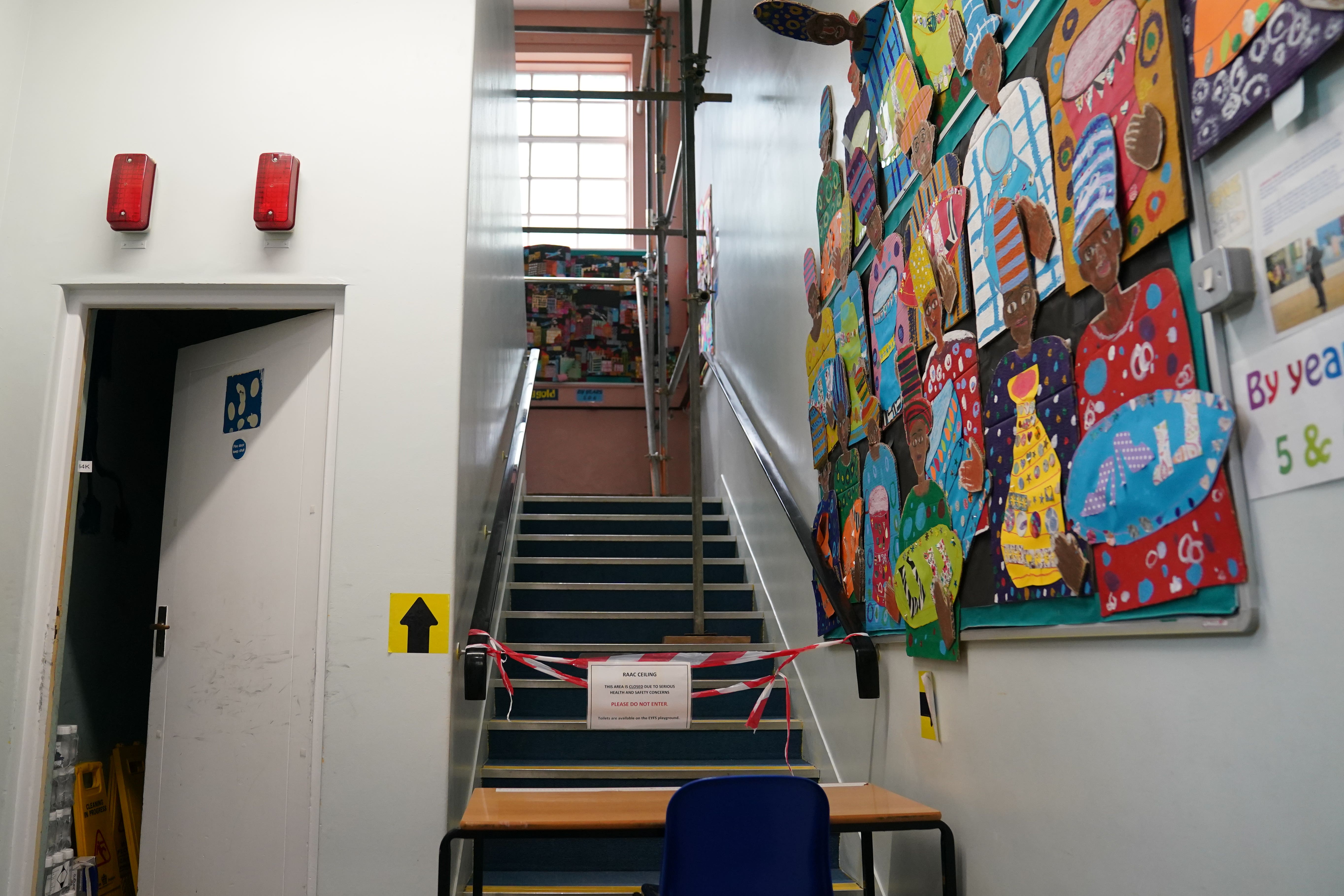Government under pressure to reveal list of schools hit by concrete crisis
Education Secretary due to address returning Parliament over plans for schools facing full or partial closure.

School closures forcing children out of classrooms is “not a return to the dark days of school lockdowns”, the Education Secretary has insisted as she faces pressure to set out plans to deal with crumbling lightweight concrete in buildings.
The Department for Education (DfE) said Gillian Keegan is due to inform Parliament on Monday “of the plan to keep parents and the public updated on the issue”.
Ms Keegan said disruption caused by the crisis should last “days, not weeks” even in cases where pandemic-style remote learning was made necessary due to building closures.
Writing in The Sun On Sunday, the Education Secretary said there was “no choice” other than to make closures after a “handful of cases” where Raac had failed.
She said: “We all have to make difficult decisions in life and responsible government is about getting them right. That means looking at evidence and acting, even when the trade-offs are significant.
“That’s the position I faced when new evidence was presented to me indicating concrete which forms part of certain school buildings was no longer safe.
“I want to reassure families that this is not a return to the dark days of school lockdowns.”
She added that a “minority” will have to teach pupils off-site or remotely but the department would fund temporary classrooms to maintain face-to-face learning.
Labour is planning to force a vote to compel the Government to reveal the extent to which reinforced autoclaved aerated concrete (Raac) is affecting public buildings.
The Government has said it will publish a list of schools “in due course”, but Labour said it plans to put forward a humble address, an arcane parliamentary mechanism which can be used to demand papers from government departments, to force the publication of a list of affected schools.
More than 100 schools and colleges have been told by the DfE to fully or partially shut buildings due to the presence of Raac, following the collapse of a beam last week.
Schools minister Nick Gibb admitted more classrooms could be forced to shut.
Labour has demanded an “urgent audit” of the public sector estate on the impact of the material.
The Government said it had been clear about the number of schools “immediately impacted” by the safety risks.
A DfE spokesperson said schools needed time “to inform parents and consider their next steps” before the list of schools is affected.
In guidance published on Thursday, the DfE recommended using nearby schools, community centres or an “empty local office building” for the “first few weeks” while structural supports are installed to mitigate the risk of collapse.
Schools were told moving to remote education should be considered only as a “last resort and for a short period”.
Although not confirmed, it is estimated around 24 schools in England have been told to close entirely because of the presence of Raac, the PA news agency understands.
Raac is a lightweight building material which was used up until the mid-1990s.
The DfE was told of the issues potentially caused by Raac in 2018.
Experts have warned that the crisis over Raac could extend beyond the education sector, with healthcare settings, courts and offices also potentially at risk.
Bookmark popover
Removed from bookmarks